“No other English composer offers more beauty in sound” Thomas Beecham said of Delius. “There’s no more extravagant, impassioned or overwhelming a canvas for that beauty than A Mass of Life, “A MASS OF LIFE” is a MASTERPIECE”. Yet for some unknown reason this epic cantata is rarely performed – 1988 was its last Proms outing – so we’re thrilled to be singing it this summer with our friends the BBC Symphony Chorus and Orchestra at the BBC Proms on August 18th, directed by our President Sir Mark Elder CH CBE who is absolutely passionate about the piece.
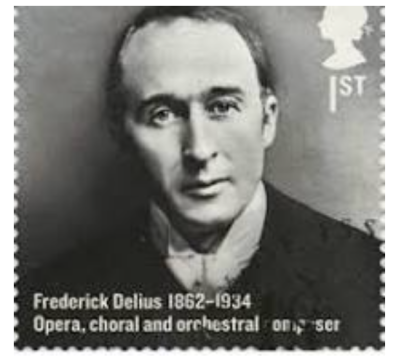 Delius was born in Bradford in 1862 to a prosperous mercantile family who, although somewhat musical, constantly discouraged his wish to be a musician. He was instead expected to follow in their businesslike footsteps but wasn’t at all interested. He failed in various family posts in England before persuading them to let him go to Florida at the age of 22 to run an orange plantation. That didn’t work out either and he soon returned to Europe where he began composing, influenced by the African-American music he had experienced and loved during his brief time in the USA. He then went on to study formally in Germany before moving to Paris where he spent the rest of his life.
Delius was born in Bradford in 1862 to a prosperous mercantile family who, although somewhat musical, constantly discouraged his wish to be a musician. He was instead expected to follow in their businesslike footsteps but wasn’t at all interested. He failed in various family posts in England before persuading them to let him go to Florida at the age of 22 to run an orange plantation. That didn’t work out either and he soon returned to Europe where he began composing, influenced by the African-American music he had experienced and loved during his brief time in the USA. He then went on to study formally in Germany before moving to Paris where he spent the rest of his life.
Delius developed a unique style which is characterised by his individual orchestration and the use of chromatic harmony which this lavish Mass is full of. He was also inspired by Grieg whose music he thought was “like a breath of fresh air”. Delius had a deep and committed interest in Norway before meeting Grieg and was drawn to its breathtaking landscape as well as its art, literature and people. When the two men were finally introduced in Germany they became deep friends. Delius’ love of Norway and the musical style of Grieg was an inspiration behind this glorious piece which was premiered by Thomas Beecham in London in 1909.
We asked Sir Mark about his thoughts and feelings on this rarely performed but fantastic cantata:
“This marvellous piece is one of Delius’ largest dreams and it’s absolutely gorgeous” he told us. “It’s a piece really to be listened to. I wish the title was different though as people might get the wrong idea and think it’s religious, which it definitely is not! It’s a Mass of Life with the emphasis being on the Life element of it as it’s a creation about the joy and wonder of life and us celebrating and enjoying that. It’s much more an ode to joy or a shout out for life.
Delius takes Nietzsche’s rapturous prose-poem ‘Also Sprach Zarathustra’ as a starting point and imagines a secular Mass – a cantata for orchestra, double chorus and soloists – celebrating the transcendent power and triumph of the human spirit in the face of death. Delius was really interested in the philosophy of ‘Also Sprach Zarathustra’ rather than the poetry so he took a long time choosing the words he wanted to use from it and was helped in this by the German musician Fritz Cassirer, to whom he dedicated the piece. The poetry itself is very striking and suitable to set to music; it’s really inspiring and suggestive, it’s about human energy and the striving for fulfilment and reaching your potential.
It’s a work in two great parts of which the second is longer and goes further and deeper and is full of the kind of ecstasy that I love, from pantheism and an acknowledgement of power in the world, and also in our lives if we let it in. I think it’s a genius piece; it’s thrilling and beautiful and has this transcendent energy – there’s such drama and contrast in it.
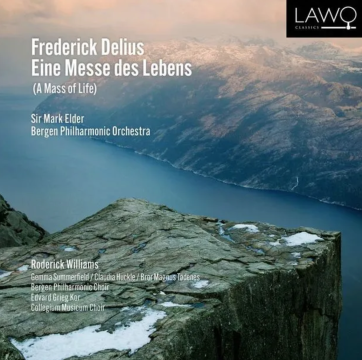
This is the kind of piece which comes along once in a lifetime. Having said that, I did in fact conduct and record it in Bergen three years ago! Although Delius is ‘English’ in that he was born here, he studied in Leipzig and then went on to Paris and travelled to other places including Norway. There he really loved the mountains and the space and you can feel that in some of his writing: for example we have a reflective episode of horns calling from the mountains in Part 2 before the choir erupts back into the wonderful energy of the piece. The piece has a real sort of ecstasy and is urging and inspiring us to dream of a better world for ourselves.
There are four soloists in the piece but the bulk of the work is sung by the baritone and it’s a huge sing for him. He can be the poet or Zarathustra or just man trying to talk to his fellow man. We’re very lucky to have Roderick Williams (who sang with us in Norway) performing with us again at the Proms as he sings this piece so well. I really can’t wait to perform this terrific piece again. People really should get excited about it and come and listen to it – there’s no better venue than the Royal Albert Hall for such an expansive work and the impact of the end is amazing.”
Roderick Williams OBE is of course one of the UK’s most sought-after baritones and is constantly in demand on the concert platform and in recital as well as on the opera stage. He’s also a friend of the LPC and we’re fortunate to have performed with him a number of times – he even came and sang as a member of the choir in our performance of Mahler’s Second Symphony in 2023 as it’s a favourite piece of his and the only way he could ever take part in it! He shared with us his excitement about taking on the role of Zarathustra again in this Prom:
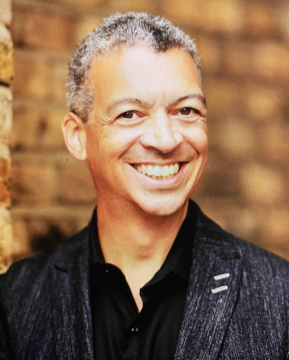
“A Mass of Life is a tremendous work and I’m delighted and grateful to have the chance to sing it again. As we all know, this piece is rarely performed but I’ve been fortunate enough to sing in it twice before, including the Bergen performance and recording with Mark, so I feel I know the role of Zarathustra reasonably well now after all the hard work and time we put in in Norway. So this is a third glorious chance to put all of that energy and effort and love into this tremendous work.
The entire Mass is about the joy of living and living in the moment. One of Mark’s points about the title is that the word ‘Mass’ makes us think religiously, which he thinks is a disservice to the piece and I agree with him. It’s absolutely nothing to do with organised religion, it’s not liturgical and is only a Mass in that it’s a communal celebration of being alive and being for the moment. Knowing this means it could and should have very broad appeal which would definitely spread beyond Germany and across cultures. It was certainly designed to have a very broad appeal so it must have been frustrating for Delius that it had so little and was so rarely performed. It’s written to celebrate human kind and, like Aaron Copeland’s Fanfare for the Common Man, it celebrates humanity at its glorious best.
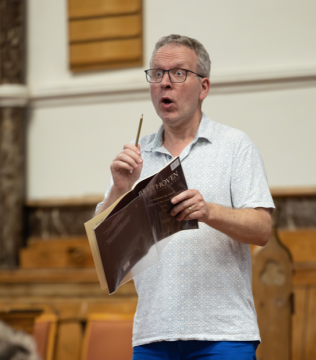
A Mass of Life really is a totemic work and something you need time to get into in order to understand and know and perform well. It’s a big old sing for everyone and it’s difficult – it requires everyone to be singing within an inch of their lives and learning and understanding it is a challenge for everybody. Luckily, as well as all the great work and direction from Mark, we have the wonderful German vocal and language coach Norbert Meyn on board to help not only with German pronunciation but also to help us to understand what is actually happening throughout the work. He was also with us in Bergen and is passionate and knowledgable not only about the words and music but also the mood and energy of the piece. I know he’s spent a lot of time getting his head around the text and what it really means so he can share that, and the energy of it, with all of us so that we can then hopefully convey all of that to the audience in the performance.
There’s a lot for me to sing in this piece as Zarathustra but I’m not an specific character, rather I’m simply carrying thoughts. The piece is more philosophical or a set of ideas or quotations than a story and I could imagine that Delius would have thought at the time he wrote it that people would have known their Nietzsche and recognise bits of it. So it’s not about Zarathustra as a character, there’s no narrative thread or context and no scene setting. There are four soloists and we are all required to transcend ourselves in the way that opera singers do but we are not defined characters. Behind the the verses and poetic suggestion of the soloists the two choirs represent the voice of the people in an everyman kind of way with rousing pleas, joyful dances and contemplative choruses.
I really can’t wait to sing this now and it’s running around my head a lot of the time. The best ear worm for me is the beautiful melody that starts the last movement; it’s the most uplifting, heroic and life affirming bit of writing for Nietzsche and Delius, and singing this in the spaciousness of the Royal Albert Hall is the perfect setting; that’s when you get your lighters out and wave them around.”
Another performer who was in the Bergen performance and recording is LPC alto Julia King who was living in Norway at the time before joining us in 2023:
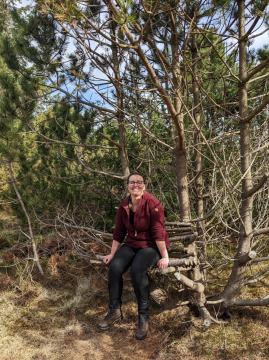 “I started singing when I was fourteen and was first dragged along by mum to sing in a choir, and I loved it. I sang throughout my university years and then took a couple of years out during which time I noticed I wasn’t quite myself before I worked out that I was really missing singing in a choir. I hadn’t realised at the time that it was so good for my mental health but as soon as I did I went straight out and found another choir to join. Now I sing wherever I am and it’s so great to be able to sing in a choir of the LPC’s calibre.
“I started singing when I was fourteen and was first dragged along by mum to sing in a choir, and I loved it. I sang throughout my university years and then took a couple of years out during which time I noticed I wasn’t quite myself before I worked out that I was really missing singing in a choir. I hadn’t realised at the time that it was so good for my mental health but as soon as I did I went straight out and found another choir to join. Now I sing wherever I am and it’s so great to be able to sing in a choir of the LPC’s calibre.
In 2018 I was in Bergen to do a PhD so I joined the chorus there and was still singing with them in 2022 when this fabulous project came along – to perform A Mass of Life and then record it a week later alongside Choir of the Earth, a virtual choir which Ethel Livermore – another of our altos – was also part of.
Sadly, in 2023 my study in Norway was over and I had to return to the UK. I was gutted to leave the Bergen choir and I knew I had to keep singing so at the end of a piano rehearsal which Ed Gardner was conducting, I asked him where should I sing in London. Without missing a beat he said, ‘sing with us of course!’ which is why I’m here now singing with the LPC. It’s absolutely wonderful to get the opportunity to sing A Mass of Life again with my ‘new’ chorus and ‘old’ musical friends Sir Mark Elder and Roderick Williams.
I feel that this is a piece that somehow sounds like nothing you’ve ever heard before yet is also weirdly familiar, which is a lot of its appeal. When we started working on it Mark did a Zoom call with us all and warned us it would be not quite like anything we’d ever sung before, and that it was a once in a lifetime opportunity so to make the most of it. I never expected to be singing it again so it’s absolutely wonderful to be doing that because we put so much hard work into it; it also makes me feel reconnected to all the friends I made in Bergen as well as my lovely LPC friends.
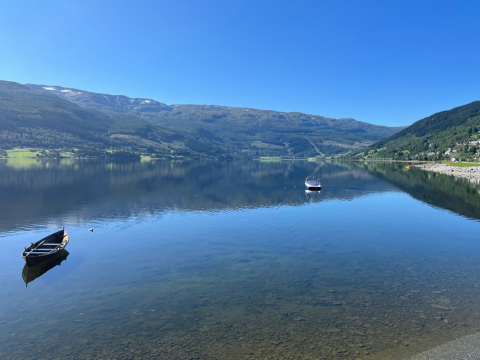
Delius wrote this Mass because he was inspired by a trip to Norway so we went on a choir retreat to Voss and had an intensive 2 days of rehearsals. I remember looking at the mountains that surrounded us and being awe struck because we were there in the scenery that had actually inspired the music.
Once you get what’s going on in the piece it really is the most marvellous, marvellous music – the harmonies are incredible and you realise that all of the rehearsal was worth it. Sometimes I think I’m ruined to be able to be in an audience again because it’s so wonderful to be surrounded by all that sound when you sing in a choir like ours and you can just lose yourself in it, it’s thrilling. Singing A Mass of Life in Norway really brought me joy and I’m sure it will again in the Prom this summer – which is exactly what the piece is about.”
Come and hear us
Monday 18th August 2025
7.30pm, Royal Albert Hall
Sir Mark Elder conductor
Jennifer Davis soprano
Claudia Huckle contralto
David Butt Philip tenor
Roderick Williams baritone
BBC Symphony Orchestra
BBC Symphony Chorus
London Philharmonic Choir
Delius A Mass of Life



